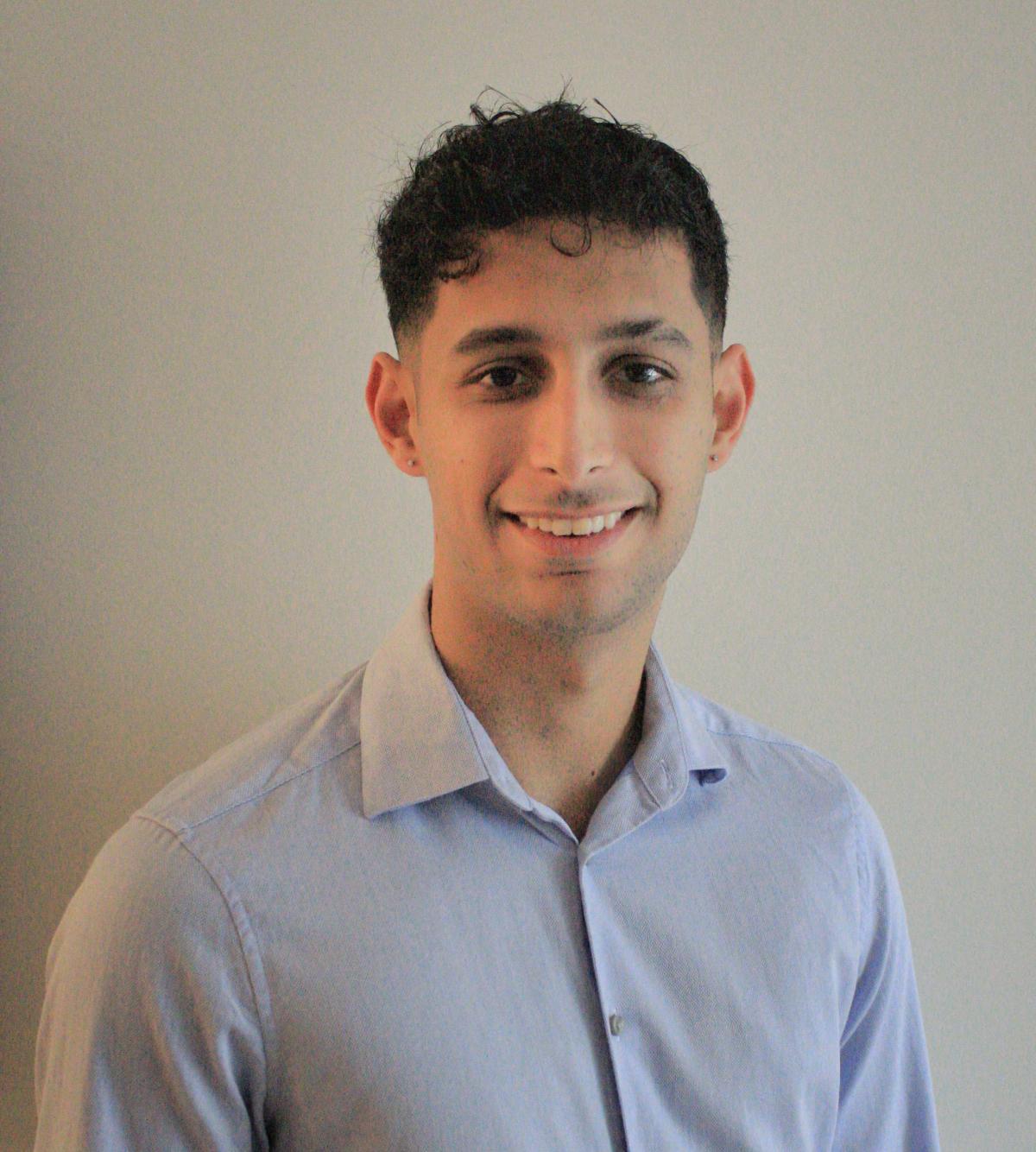
Raised in Rio de Janeiro, Brazil, in the shadow of the city’s sprawling hillside “favela” slums, Victor Brandão grew up acutely aware of what it could mean for people to live without reliable access to basic resources like electricity and water.
“Seeing the disparities never really left me,” he said. “As a kid, changing that seemed far-fetched, but it’s what first sparked my interest in science.”
He said his upbringing inspired his interest in sustainable engineering and helping underserved communities.
Now a fourth-year PhD student in Georgia Tech’s School of Chemical and Biomolecular Engineering (ChBE), Brandão said he is channeling that early motivation into leading-edge research that could transform how the world addresses carbon emissions.
Working under the guidance of his advisor, Professor Carsten Sievers, Brandão focuses on electrochemical carbon dioxide conversion—turning CO₂ from the atmosphere into useful feedstocks for the materials and fuels industry. His work lies at the fundamental level of reaction engineering, employing in-situ spectroscopic techniques to understand and improve the molecular mechanics behind the process.
“The idea is to close the carbon loop,” he said. “We’re taking a greenhouse gas and using electricity to convert CO2 into something we can actually sell—multi-carbon molecules that are precursors to materials and fuels. There’s a huge potential here for carbon circularity.”
ACS Catalysis recently published his research team's paper on the effect of temperature on CO2 electrolysis.
Choosing Georgia Tech
During his studies in chemical engineering at Brazil’s Military Institute of Engineering, Brandão completed a semester-long research fellowship at Texas Tech University, an experience that helped solidify his decision to pursue graduate studies.
He said he chose Georgia Tech because of its breadth of research, collaborative culture, and vibrant city setting. He said he’s grown to appreciate the seasonal weather changes as opposed to the year-round heat of Rio.
Since starting the PhD program in 2021, Brandão has flourished, earning a 4.0 GPA while amassing an impressive array of accolades, including the Ziegler Award for Best PhD Proposal and the Kokes Award from the North American Catalysis Society.
Ping Fellowship Recipient
In fall 2024, Brandão won the Andria Deaguero Ping Fellowship. The Ping Fellowship Endowment Fund was established by friends and family in memory of Ping (PhD CHE 2011), who died from breast cancer in 2022. While at Tech, she met her husband, Eric Ping (also PhD CHE 2011).
The Andria Deaguero Ping Fellowship Endowment Fund is helping perpetuate her passion for STEM education, assisting and empowering future generations of students like Brandão who are pursuing their graduate degrees in ChBE@GT.
During her own PhD studies, Ping discovered her passion for teaching through a development program that placed her in a local high school for one day a week. This experience surpassed all others, affirming her career choice.
“As a chemistry teacher, I consider it my challenge to show students who are not interested why I love science, how it explains the world around us, and how, once in a while, it is simply awe-inspiring,” she said.
Passion for Teaching
Brandão shares Ping’s passion for teaching. During his undergraduate studies, he worked as a chemistry teacher at a private school for several years. He’s carried that enthusiasm into his time at Georgia Tech, serving as a teaching assistant (winning the Shell Outstanding Teaching Assistant Award in 2023).
“I love being in the classroom,” he said. “Teaching is something I could see myself doing long-term, whether in academia or in a corporate setting.”
While open to a career in academia, Brandão is leaning toward industry as his next move after earning his PhD in 2026, considering career paths in the materials, chemicals, and energy industry. This summer, he’ll be interning at Eastman Chemical in Kingsport, Tennessee, working with the catalysis and solids scale-up team in an area adjacent to his current research but different enough to offer new challenges.
“It’s a great opportunity to explore a different technical challenge in an industry setting,” he said. “I’m excited to explore that side of things.”
Community Leadership
At Georgia Tech, Brandão is deeply invested in community and mentorship.
“I think part of what won me the Ping Fellowship was community service,” Brandão said. “I enjoy helping people around me to get involved too.”
As a group leader and advisory board member for GT6000—a university-wide orientation program for new graduate students—he’s made it his mission to help incoming students access the resources he found so valuable.
“GT6000 really opened my eyes to many resources Georgia Tech has to offer, including programs at the Career Center, Center for Teaching and Learning, and Communications Lab,” he said. “Many students don’t even know some of these exist. We want to change that.”
For new PhD students, Brandão recommends taking things one day at a time. “When I first started the program, my main concern was to survive classes and study to pass the Qualifying Exam in the second semester.”
And he performed far better than just passing, winning the award for Outstanding Performance on the Qualifying Exam in 2022.
“Focusing on each goal along the way has been very helpful to me,” he said. “Otherwise, it can be very stressful and overwhelming to try to see the whole future.”
Please note gifts and commitments in support of undergraduate scholarships are included in Transforming Tomorrow: The Campaign for Georgia Tech, a more than $2 billion comprehensive campaign designed to secure resources that will advance the Institute and its impact — on people’s lives, on the way we work together to create innovative solutions, and on our world — for decades to come.